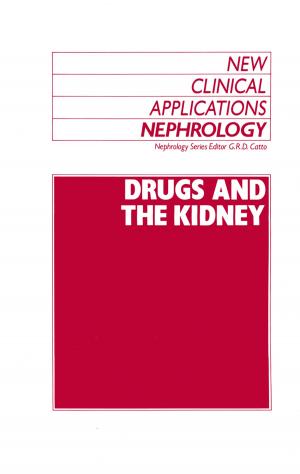Phenomenology and Treatment of Psychiatric Emergencies
Nonfiction, Religion & Spirituality, Philosophy, Phenomenology, Health & Well Being, Medical, Specialties, Psychiatry| Author: | ISBN: | 9789401181082 | |
| Publisher: | Springer Netherlands | Publication: | December 6, 2012 |
| Imprint: | Springer | Language: | English |
| Author: | |
| ISBN: | 9789401181082 |
| Publisher: | Springer Netherlands |
| Publication: | December 6, 2012 |
| Imprint: | Springer |
| Language: | English |
psychiatric treatment approaches there are opportunities for trial and error, exploration and reconsideration, revision of treatment approach, and correc tion of errors. Revisions and corrections are based on observations of pro gress and on response from patients about the impact of treatment efforts. But emergency interventions usually are one time efforts involving a sequence of evaluation, therapeutic intervention, and referral out. Response is limited or absent and there are no opportunities for corrections over time. Therefore, interventions and referrals must be made on the basis of first evaluations, with positive conviction related to current best effort and despite the lack of guidance derived from tracking the patient's progress over time. The staff must tolerate the risk-taking required, and must also be prepared to forego the gratification of seeing the beneficial results of the work done. Even in pro grams structured to allow return visits, and despite the occasional information provided by other agencies after referrals, the majority of patients are lost to follow up. The usefulness of specific interventions is hard to evaluate and the satisfaction of seeing a task completed is rarely available. The emergency program staff must tolerate a considerable amount of stress in the environment. Emergency care centers are collection points for an extraordinary volume of human suffering. The anxieties and strains asso ciated with persistent urgency of need, alarm related to unexpected difficul ties, fearfulness about outcome, closeness of death, and presence of pain pervade the atmosphere.
psychiatric treatment approaches there are opportunities for trial and error, exploration and reconsideration, revision of treatment approach, and correc tion of errors. Revisions and corrections are based on observations of pro gress and on response from patients about the impact of treatment efforts. But emergency interventions usually are one time efforts involving a sequence of evaluation, therapeutic intervention, and referral out. Response is limited or absent and there are no opportunities for corrections over time. Therefore, interventions and referrals must be made on the basis of first evaluations, with positive conviction related to current best effort and despite the lack of guidance derived from tracking the patient's progress over time. The staff must tolerate the risk-taking required, and must also be prepared to forego the gratification of seeing the beneficial results of the work done. Even in pro grams structured to allow return visits, and despite the occasional information provided by other agencies after referrals, the majority of patients are lost to follow up. The usefulness of specific interventions is hard to evaluate and the satisfaction of seeing a task completed is rarely available. The emergency program staff must tolerate a considerable amount of stress in the environment. Emergency care centers are collection points for an extraordinary volume of human suffering. The anxieties and strains asso ciated with persistent urgency of need, alarm related to unexpected difficul ties, fearfulness about outcome, closeness of death, and presence of pain pervade the atmosphere.















